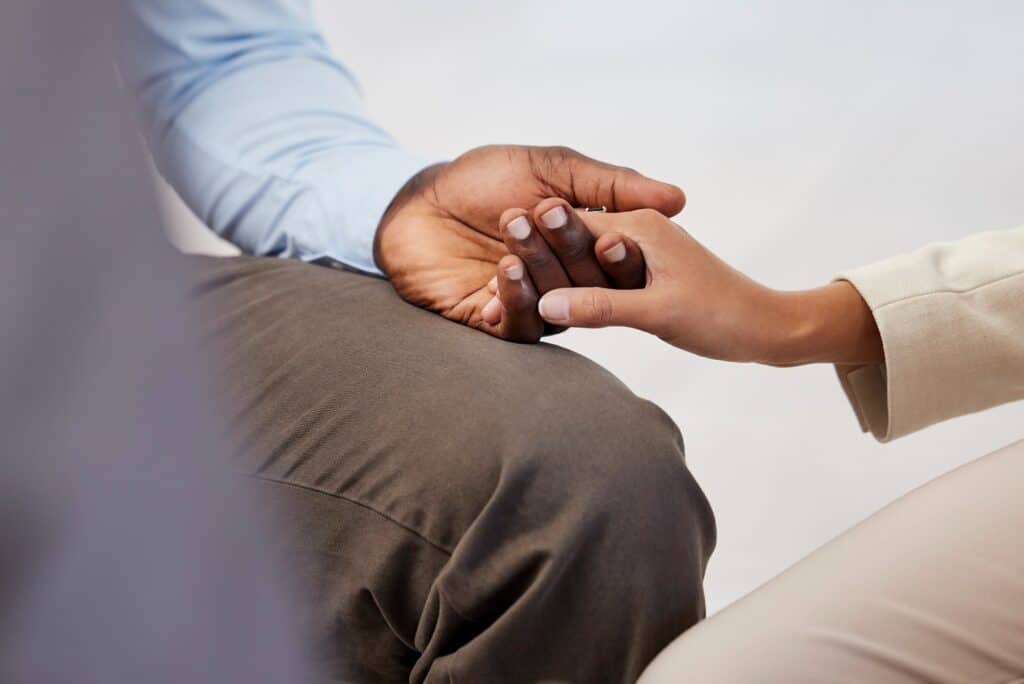As the saying goes, Socrates once wisely remarked, “The secret of change is to focus all of your energy not on fighting the old, but on building the new.” In simpler terms, the key is to look forward rather than dwelling on the past.
Although Socrates would have stood out as remarkably enlightened for his era, this profound wisdom is now accessible to all through the guidance of a skilled therapist. While therapy certainly holds value for everyone, its significance is magnified for those in recovery.
Why? Especially during the early stages of treatment, life feels uncertain and aspirations often appear just beyond reach.
Therapy at Every Addiction Stage

For this reason, therapy plays a vital role in addiction treatment. From detox to inpatient therapy, to outpatient and beyond, therapy is integral to every stage of recovery.
According to Dr Jason Z. Powers, Chief Medical Officer, Positive Recovery Centers, residential treatment, or treatment that is conducted inside a residential setting (inpatient) is where therapists can truly help their patients figure out the behaviors and triggers that have led to addiction and relapse.
“Therapists in residential treatment centers can tailor therapy sessions to each patient’s unique needs, addressing underlying psychological and emotional factors contributing to their addiction,”
Dr Jason Z. Powers, Chief Medical Officer, Positive Recovery Centers
According to Dr Powers therapy provides individuals with a secure and encouraging environment to delve into their thoughts, feelings, and experiences. Ultimately, this process leads to the discovery and adoption of more effective coping strategies and response mechanisms.
Through this introspective journey, individuals not only uncover hidden parts of themselves but also gain the opportunity to address the traumas that led them to addiction in the first place, creating space for Post Traumatic Growth.
Dr Powers continues on to say, “This self-exploration can help individuals address unresolved traumas and develop healthier ways of coping and acting.”
Develop a Relapse Prevention Plan
Furthermore, at Positive Recovery Centers, therapists work with patients from the beginning of their journey to develop personalized relapse prevention plans.
According to Dr Powers, this is done when therapists help their patients identify triggers and create strategies based on those triggers. By doing this, individuals have a higher chance of maintaining sobriety after they leave the residential treatment facility.
How to Manage Stress, Triggers, and Cravings in Therapy

So, what exactly does therapy teach?
At Positive Recovery Centers, therapeutic sessions are designed to impart crucial skills to clients, equipping them with what they need to handle stress, triggers, and cravings inside the treatment center and beyond.
These sessions involve stress reduction techniques, communication skills, problem-solving strategies, life coping skills, and relapse prevention techniques, all of which align with the principles of Positive Recovery to foster a comprehensive and empowered approach to healing and growth.
Shared Experience in Group Therapy
Don’t underestimate the power of group therapy, according to Dr Powers. Group therapy sessions are an important component of therapy in residential and outpatient settings.
“Group therapy sessions provide a sense of community and belonging, as patients interact with others who are going through similar challenges. Sharing experiences, listening to others stories, and receiving feedback can help patients feel less isolated and build a support network,”
Dr Jason Z. Powers, Chief Medical Officer, Positive Recovery Centers
Rebecca Buzek, LPC-S, Executive Director, Garden Oaks, Positive Recovery Center, says that group therapy is one of the most important components of treatment because of what individuals get out of it.
She says, “Being part of a community of people who are going through the same type of things you are and that have the same goals is not something you can replicate outside of this setting. It allows people to identify problems, patterns of behavior, and witness others change and heal. Clients often learn more from each other than they do from staff. The community is the agent of change.”
Healing Power of Family Therapy

However, group therapy isn’t the sole avenue to establish connections and come to the realization that you’re not isolated. Including friends and family in therapeutic sessions is also very helpful.
At Positive Recovery Centers, family therapy is an integral and vital part of treatment.
According to Ellen Plaze, Executive Director, Positive Recovery Centers, “Regular therapeutic sessions provide an opportunity to help develop a treatment plan to achieve your goals and an opportunity to include family in your treatment.”
At Positive Recover Centers, we have weekly family sessions and family workshops with Dr Powers. We value the input of the family. When our clients do “the work” it is essential that the family who so desperately wants “change to occur,” allow it to happen.
Gift of Positive Recovery
In conclusion, as emphasized by Julie DeNofa, President of Positive Recovery Centers, the significance of therapy cannot be underestimated.
While we’re in the grips of addiction, we often lose sight of our true selves. Therapy serves as a guiding force to reconnect us with our authentic identity so that we can get back to being our best selves.
She says, “In addiction, we lose connection with ourselves and with others, we help clients remember who they were at their best, reconnect with who they are at their core and often help families heal by returning to them the son, daughter, father, mother. The gift of recovery is one that words can not adequately describe – it is only through experiencing that one can fully understand.”
Addiction Treatment Services in Texas
If you or a loved one are in need of addiction treatment, look no further than Positive Recovery Centers. PRC is committed to providing comprehensive care that addresses your addiction and mental health needs. Across Texas, several conveniently located treatment centers offer various services, from Medical Detox to Long Term treatment in Texas. Please visit positiverecovery.com or call us at (877) 697-1383 to speak with a team member today! Together, let’s break the cycle of addiction and create a future filled with hope, healing, and resilience. You are not alone in your journey.